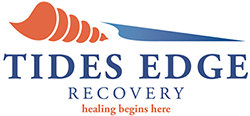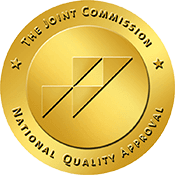 Addiction also takes time to recover from. Early treatment is also essential to maximizing your chances of recovery. The longer substance abuse disorders remain ignored or untreated, the worse they become. Treatment and detox centers offer evidence-based treatments such as cognitive-behavioral therapy, medication-assisted treatment programs, and detox therapy programs to help you learn the tools and skills you need to regain control of your life.
Addiction also takes time to recover from. Early treatment is also essential to maximizing your chances of recovery. The longer substance abuse disorders remain ignored or untreated, the worse they become. Treatment and detox centers offer evidence-based treatments such as cognitive-behavioral therapy, medication-assisted treatment programs, and detox therapy programs to help you learn the tools and skills you need to regain control of your life.
When you struggle with a substance abuse disorder, addiction or alcoholism, you can deal with medical, financial and relationship problems. Substance abuse disorders are complex and progressive diseases that have the ability to impact your brain chemistry and impair your judgment. Addiction is also a chronic, incurable condition that doesn’t discriminate. Anyone, regardless of age, race, education or gender, can ultimately develop a substance abuse disorder.
What is Addiction?
Addiction occurs when you compulsively abuse drugs or alcohol despite encountering negative consequences and having a desire to stop using. Drugs and alcohol are physically and psychologically addicting and cause your brain’s pleasure and reward center to change. When you use drugs or alcohol, your brain releases a rush of pleasurable neurotransmitters that cause the positive effects of intoxication. Once the effects wear off, your brain is left depleted of neurotransmitters, which causes depressed moods and cravings.
Your brain also associates drugs and alcohol with pleasure, because when you use, you experience a rush of pleasurable neurotransmitters. Your brain then craves your substance of choice and rewards your drug or alcohol use with more neurotransmitters. Cravings are especially intense when you are exposed to triggers, which are people, places or things that remind you of your substance of choice. You can also deal with intense and painful withdrawal symptoms when you stop using if you have developed a physical dependency.
Common signs and symptoms of addiction include:
- Isolating from friends and family members in order to use
- Spending excessive amounts of money on drugs or alcohol
- Going to work or school intoxicated
- Needing to use in order to feel normal
- Experiencing memory loss
- Drastic personality or mood changes
Drug and alcohol detox treatment programs are especially helpful during detox because they can alleviate and reduce your withdrawal symptoms. Treatment centers also offer a cognitive-behavioral therapy program for addiction, which helps you learn to identify and change negative thoughts, feelings and behaviors.
About a Cognitive-Behavioral Therapy Program
Cognitive-behavioral therapy programs are especially helpful during recovery. Outpatient and inpatient detox centers offer a variety of cognitive-behavioral therapy programs. Individual counseling can help you identify and express troubling emotions or feelings. Cognitive-behavioral therapy programs also implement group and family counseling.
Cognitive-behavioral therapy programs are evidence-based treatments. Evidence-based treatments are therapies that are proven to be effective in past patients following extensive studies and research. Talking based cognitive-behavioral therapy programs can help you learn valuable recovery skills, such as coping strategies and relapse prevention techniques.
During recovery, nearly half of all people experience a relapse. A relapse happens when you begin abusing drugs or alcohol following a period of abstinence. Cognitive-behavioral therapy programs provide relapse prevention education, which can help you learn how to properly cope with triggers. Another benefit is that they are safe to use in combination with other treatments, such as medication-assisted therapy and holistic treatments.
Reaching Out for Help Today
Battling an addiction or substance abuse disorder can make it difficult to maintain control over your life. Addiction can cause damaging consequences, such as housing instability and employment problems. Treatment and detox centers, which offer things like a cognitive-behavioral therapy program and individual counseling, can provide you with the support and understanding you need to recover. Call us today at 866.723.3127 to learn more about our programs.


